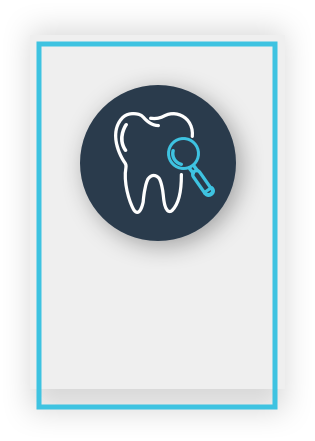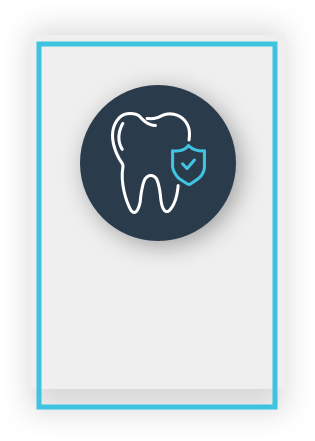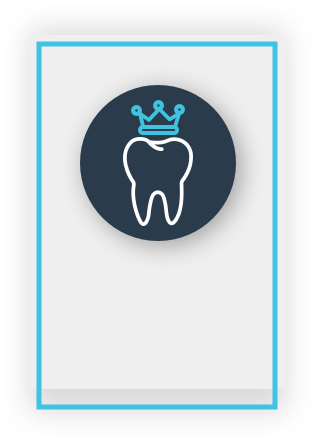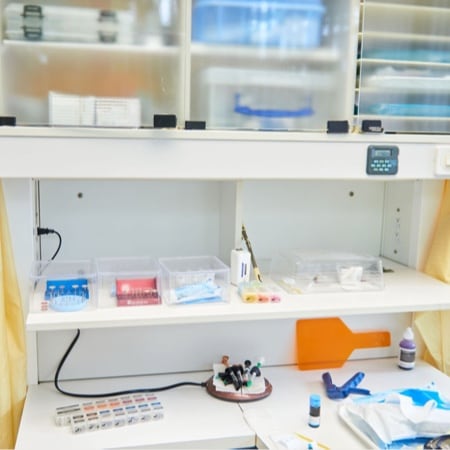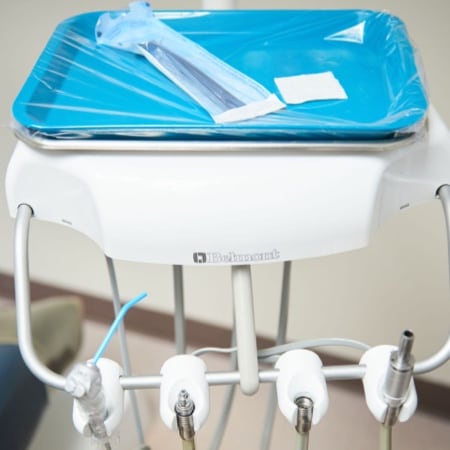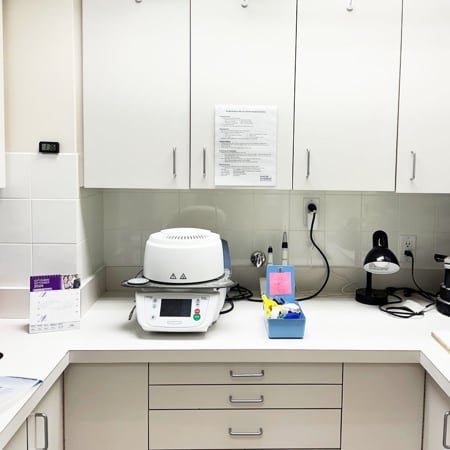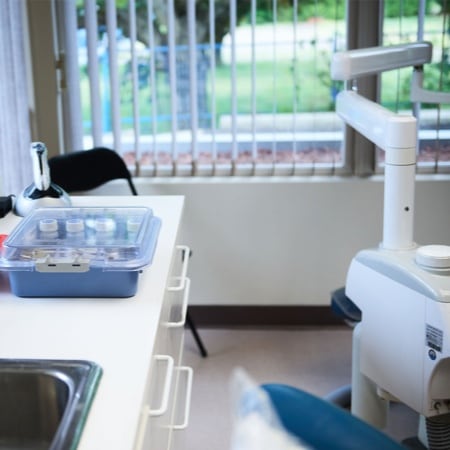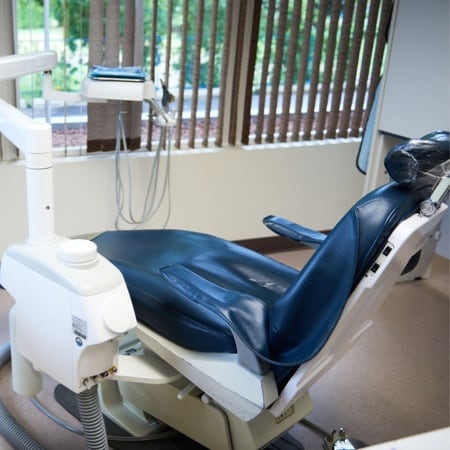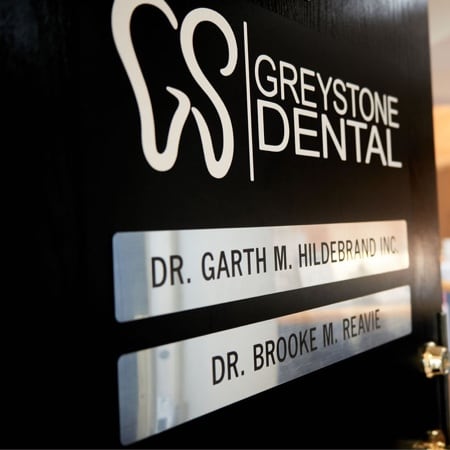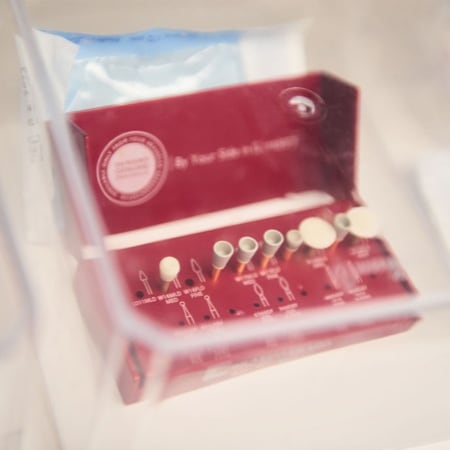If you’re experiencing toothaches that don’t seem to have a clear source—no visible cavity, no gum inflammation—it may not be your teeth. Sometimes, that aching, throbbing discomfort could be coming from your jaw.
Temporomandibular joint (TMJ) dysfunction is a common but often overlooked cause of tooth discomfort. While the sensation might feel like it radiates from a tooth, the source is actually the muscles and joints around your jaw.
The good news is that TMJ dysfunction is manageable. You can find lasting relief and protect your long-term oral health with a personalized treatment approach.
What Is the TMJ?
The temporomandibular joint connects your lower jaw to your skull, right in front of your ears. It’s one of the most active joints in your body, responsible for chewing, speaking, yawning, and swallowing.
Your jaw joint moves in multiple directions, so it’s vulnerable to inflammation, misalignment, and muscle strain.
TMJ disorder (TMD) refers to any dysfunction in the joint or surrounding muscles, including joint inflammation, disc displacement, or muscle tension.
While TMD can cause uncomfortable and sometimes debilitating symptoms, the discomfort isn’t limited to the jaw; it can also affect your teeth.
What Does TMJ-Related Tooth Pain Feel Like?
Discomfort caused by TMJ dysfunction can mimic the sensation of a toothache. You might feel:
- A dull ache in your molars or multiple teeth on the side of your mouth
- Sharp discomfort when biting or chewing
- Sensitivity that feels like it’s in the teeth but doesn’t respond to dental treatment
- Severe discomfort that worsens after clenching, chewing, or yawning
It can be puzzling when you feel discomfort in your teeth, but your dentist doesn’t identify signs of cavities or damage.
The reason might surprise you: the nerve pathways in your jaw and face are closely connected. When the temporomandibular joint becomes inflamed, it can send signals that your brain might mistakenly interpret as a toothache.
Other Common Symptoms of TMJ Dysfunction
A toothache is just one of several symptoms linked to TMJ problems. Other symptoms may include:
- Jaw soreness or stiffness, especially in the morning
- Clicking or popping sounds when opening or closing your mouth
- Difficulty chewing or jaw locking
- Severe discomfort that radiates to the ear, neck, or temples
- Headaches or migraines, particularly around the temples
- A feeling that your bite is “off” or your teeth don’t fit together properly
These symptoms may appear gradually or suddenly, ranging from mild to severe.
What Causes TMJ Dysfunction?
Various factors can cause TMJ issues. Some of the most common include:
- Teeth grinding or clenching (bruxism), especially at night
- Jaw misalignment or bite problems
- Injury or trauma to the head, neck, or jaw
- Arthritis in the jaw joint
- Excessive chewing, gum use, or jaw tension due to stress
- Connective tissue disorders that affect joint function
For some people, it’s a combination of these factors that contributes to ongoing TMJ discomfort.
How Is TMJ Diagnosed?
Because TMJ symptoms can mimic other dental conditions, finding an effective treatment starts with a thorough evaluation. Your dentist will perform:
- A physical exam of the jaw, teeth, & bite
- Palpation (gentle pressure) on the joint to check for tenderness
- Listening for clicks, pops, or grinding sounds during movement
- Assessment of your jaw’s range of motion
- Imaging such as X-rays or, in some cases, CT or MRI to examine the joint and surrounding tissues
If your symptoms stem from TMD and not your teeth, your dentist can create a treatment plan focused on relieving tension, improving joint function, and reducing inflammation.

How Is TMJ-Related Tooth Discomfort Treated?
Treatment for TMJ dysfunction depends on the underlying cause. However, it typically includes a combination of home care, dental treatments, and lifestyle adjustments.
Custom Night Guard or Splint
For many patients, tooth grinding or clenching during sleep puts excessive strain on the jaw joint. A custom-made night guard can help cushion the jaw, reduce pressure, and prevent further damage to the teeth and joints.
Jaw Exercises & Physiotherapy
Gentle stretching and strengthening exercises can help improve joint function and reduce tension in the surrounding muscles. In some cases, your dentist may recommend consulting a physiotherapist familiar with TMJ treatment.
Bite Adjustment
When your bite is misaligned, orthodontic treatment may be necessary to establish a more stable jaw position and alleviate strain on the temporomandibular joint (TMJ).
Lifestyle Changes
Stress management techniques, posture improvements, and avoiding habits such as gum chewing or jaw clenching can make a significant difference in symptom relief.
Medication & Therapy
Over-the-counter anti-inflammatory medications, such as ibuprofen, can help manage discomfort. In more advanced cases, your health provider may prescribe muscle relaxants or short-term steroid therapy.
Referral for Progressed Treatment
When conservative measures aren’t enough, your dentist may refer you to a specialist for more progressive therapies, such as injections to relax overactive jaw muscles or surgical intervention in rare cases.
When Should You Seek Help?
TMJ dysfunction often starts with mild symptoms that come and go. However, if you’re experiencing persistent toothaches that don’t respond to regular dental care, or you’ve noticed jaw stiffness, clicking, or headaches, it’s worth having your TMJ assessed.
Early treatment can prevent symptoms from worsening and reduce the risk of long-term damage to the jaw joint and teeth.
A Gentle Approach to Jaw and Tooth Discomfort
Toothaches can be more complicated than they seem, especially when the source isn’t the tooth. If your discomfort is caused by the jaw joint or surrounding muscles, a compassionate and knowledgeable dental team can help you find answers and relief.
At Greystone Dental in Chilliwack, we combine family-focused care with years of experience in diagnosing complex dental concerns.
If you’re experiencing unexplained tooth discomfort, we’re here to listen, thoroughly assess your situation, and guide you toward a solution that supports your comfort and overall oral health.
Schedule your appointment today and experience dental care you can trust—from our family to yours.



